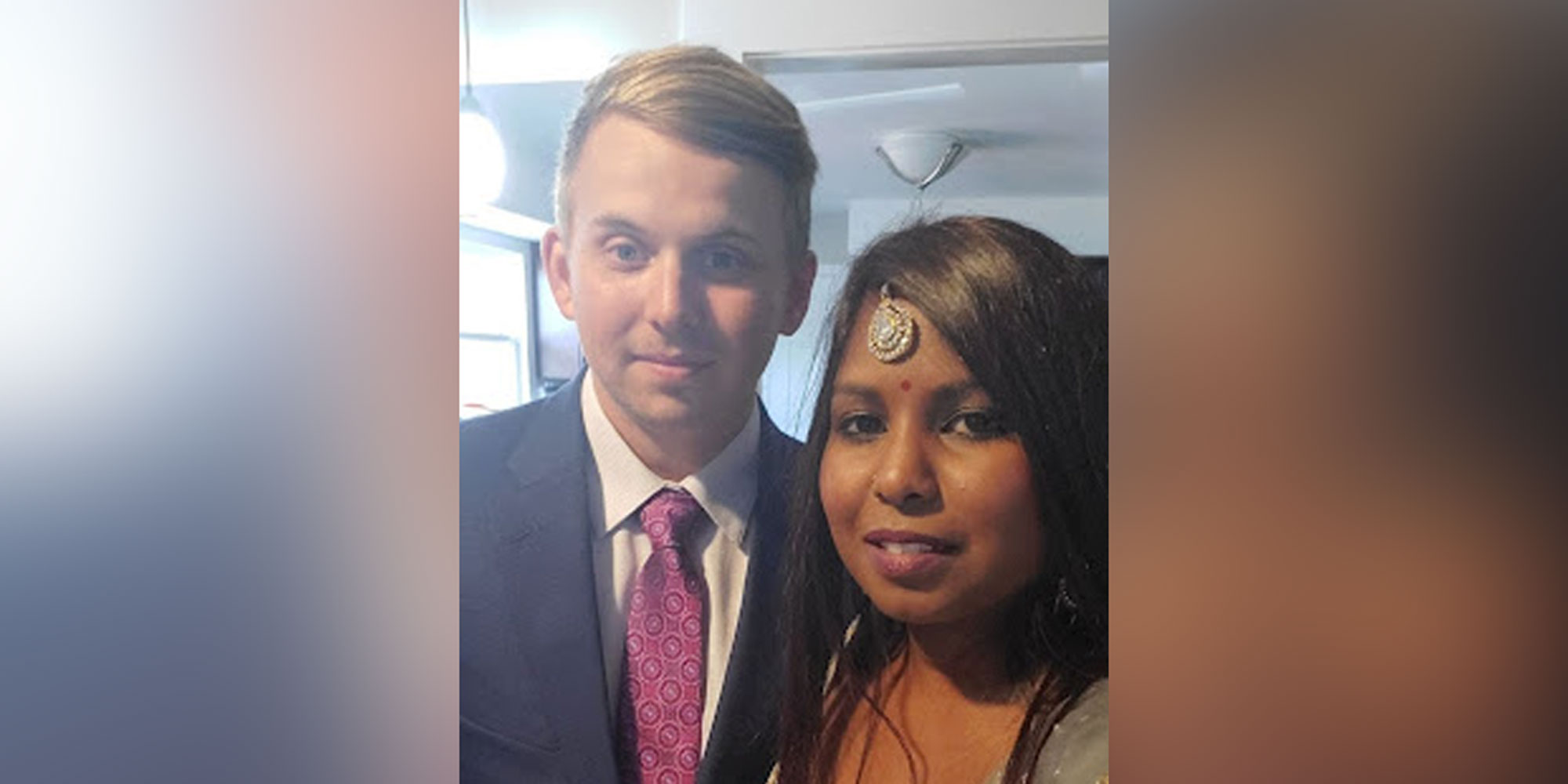Published: November 18, 2021

Foreign Military Spouses Face Unique Challenges; Blue Star Families Aims to Help
Meet Anicia. She’s a Navy spouse and, thanks to the partnership with the Robert R. McCormick Foundation, Blue Star Families’ Chicagoland DEPLOY fellow. We know that military families struggle to build new relationships after each move. In fact, from the 2020 Military Family Lifestyle Survey, we learned, only 27% of active-duty family respondents reported feeling a sense of belonging to their local civilian community. The lack of connection leads to feelings of isolation, which has a major impact on the mental well-being of service members and their dependents. And when there’s stress at home, mission readiness suffers.
While all military families struggle to belong, foreign military spouses and families face a uniquely difficult battle to connect and find their way. These spouses are oceans away from family and navigating a culture that is entirely different from their own. For instance, some face language barriers, which can also lead to employment concerns. The experience can leave them feeling even more out of place, unsure of how to find their footing within the military community and the civilian communities they live in.
Anicia fully understands those difficulties. “I am of Indian (Asian) descent, but my ancestors moved to South Africa as indentured laborers, a practice that was common during 1860 and 1911,” Anicia explained. “Growing up in South Africa was great! Our entire family lived close by, all within 20 minutes distance. Family time is very important to us. When I say family time, I mean in addition to immediate family, extended family is as important. I can have family members visit any day of the week at any time, and we will be perfectly fine with that. The people and food are among the things I miss the most.”
While Anicia loved her time at home, she also had a passion for travel, to learn and experience other cultures. It was that passion that brought her to the United Arab Emirates as a teacher. It’s a time in her life that Anicia recalls being one of the best experiences she’s ever had. After having such a positive experience there, Anicia decided to take on another adventure: moving to the United States to teach in North Carolina.
“For me, traveling is learning, and I wanted to learn more about American culture,” Anicia said. “But my adjustment to the U.S. was more difficult than the UAE. One thing that has been hard is the distance between my family and me. Trying to make friends and fitting in is definitely more difficult in the US than anywhere I’ve been. And now, being a foreign military spouse has new challenges. As a foreign spouse, your first stressor is the immigration process. While going through that, you have to somehow settle into a new country, a new way of life, try to make new friends, fit in, and eventually find a new job and adjust to that. I have most certainly felt lonely being so far away from my family. Especially since we are such a close family. I have felt excluded and out of place quite often.”
For Anicia, what has made navigating military spouse life easier has been the organizations and resources she’s connected with. Having groups, like Blue Star Families, available to her has helped her create a sense of community and feel like she’s a part of something. But not all families report being able to find resources to help them and, if they do, they don’t all feel comfortable reaching out for help. In fact, the recent Pain Points Poll found that military families of color are less likely to hear about support and resources available to them. Such as critical resources that help families combat isolation and create an environment that allows them to thrive.
Part of the problem? Lack of representation. “When people do not see familiar representation, they feel unwelcome,” Anicia shared. “It is important to have diverse representation within the military to create that sense of belonging and unity.” That’s why Blue Star Families created the DEPLOY fellow program.
“DEPLOY Fellows is a Blue Star Program within our Racial Equity and Inclusion Initiative designed to diversify and expand the pipeline of leaders in the military community,” said Kathy Roth-Douquet, CEO and Founder of Blue Star Families. “The effort will embed and train individuals from historically underrepresented populations into Blue Star Families’ organization as paid staff in national and Chapter roles. Through our training, we’ll seed a new generation of leaders throughout the veteran and military family support space.”
Anicia knows how hard it is to be oceans away from family and how important it is to find ways to create connections. Thanks to the support of the Robert R. McCormick Foundation, Anicia will help foreign spouses like herself, military families of color, and the military community as a whole as Blue Star Families’ Chicagoland DEPLOY Fellow. In her new role, Anicia plans to focus on relationships and embracing differences to create a safe and supportive space where families can learn, share, and succeed. And Blue Star Families’ programming and resources will empower her to do just that — offering free support to families in Chicago and around the globe.
Join Blue Star Families today to access enriching resources and support available in your community at www.bluestarfam.org.
Posted In:
